The Evolution Of Fiqh: Islamic Law And The Madh-habs
Out of stock
1,950 PKR
Out of stock
CompareAuthor: Dr. Abu Ameenah Bilal Philips
Publisher: International Islamic Publishing House
Pages: 228
Binding: Softcover
ISBN: 9960953335
About the Book: This is a current expanded, revised edition of the author’s original work. This is Bilal Philips’ best-selling work on the various schools of thought in Islam, including detailed facts, insight, and commentary on the four major madhabs as well as other, less-known madhabs in Islam. Includes mini-biographies on various eminent Islamic scholars. The author very clearly presents a brief overview of the historical development of Islamic law and its schools (the ‘madhabs, ”madhahib’). The book identifies the main reason from the appearance of the schools and the factors leading to differences among them. For those to whom the madh-habs have been a mystery, this aspect of the book will be extremely enlightening.
About the Author: Dr Abu Ameenah Bilal Philips is a Jamaican Canadian Islamic Scholar born on the 17th of July 1947 who converted to Islam in the early seventies after journeying politically and intellectually from Christianity to Communism. Shortly after his reversion to Islam, he embarked on a spiritual academic journey to the other side of the world seeking Islamic knowledge. This journey took him to Saudi Arabia where he completed a BA in Islamic studies in Madeenah, and an MA in Islamic Theology in Riyadh, then to the University of Wales, UK, where he completed a PhD in Islamic Theology in the early nineties.
After graduation from Madeenah, Dr Bilal became a teacher of Islamic studies for 10 years in an Islamic High School, Manaret Riyadh, and a lecturer of Arabic and Islamic studies in the American University in Dubai, UAE, for another 10 years. During his 10 years in the UAE, he founded and taught at the Islamic Information Center in Dubai, and during his subsequent 7 years in Qatar he has been an Islamic consultant and lecturer for the Islamic Information wing of Sh. Eed Charity.
Dr. Bilal Philips has written, translated and commented on over 50 published books on various Islamic topics. He has also edited and published the 56 book Eemaan Reading Series for children and presented Islamic programs for a number of years on Riyadh Channel 2TV, Sharjah TV for ten years, as well as Peace TV, Huda TV, Islam Channel, UK, and the Deen Show, Chicago, USA.
In 2002, Dr. Philips founded and headed the Islamic Studies department of Preston University, Ajman, UAE, and in 2007 he founded and headed the Islamic Studies Academy, Doha, Qatar, while simultaneously launching the International Open University (IOU), previously known as the Islamic Online University, which offers affordable degree and diploma courses to hundreds of thousands of registered students from over 200 different countries world wide, and for which he was included in the Jordanian publication, The 500 Most Influential Muslims.
Dr. Bilal subsequently founded and headed, in 2008, the English medium Islamic studies department of Knowledge International University, who’s Chancellor is Shaikh Dr. ‘Abdur-Rahman ibn ‘Abdil-Azeez Al Sudais and who’s President of the board of trustees is Shaikh ‘Abdul-Azeez ibn ‘Abdullah Al Shaikh, Mufti of Saudi Arabia. More recently, in 2009, Dr. Bilal Philips founded and headed the College of Da’wah and Islamic Culture (English Section), Omdurman Islamic University, Sudan, and established and directed Preston International College in Chennai, India.
In March 2010, Dr. Abu Ameenah Bilal Philips launched, for the first time in history, an accredited tuition-free BA in Islamic Studies degree course at the International Open University.
Review: I have read several books on the subject, but this one is by far the best, for several reasons. Firstly, the book isn’t excessively detailed; the concept is beautifully summed up in less than 200 pages by Bilal Philips, which is just the right type of length to properly introduce one to fiqh. Secondly, there is no author’s bias here that’s so common to books of this nature; the information is presented in an objective manner, with a factual and non-patronizing tone adopted throughout. The paper quality is good, and the division of ‘evolution of fiqh’ into the various stages really helps the reader to comprehend the concept of madhabs. – Ammar Awais



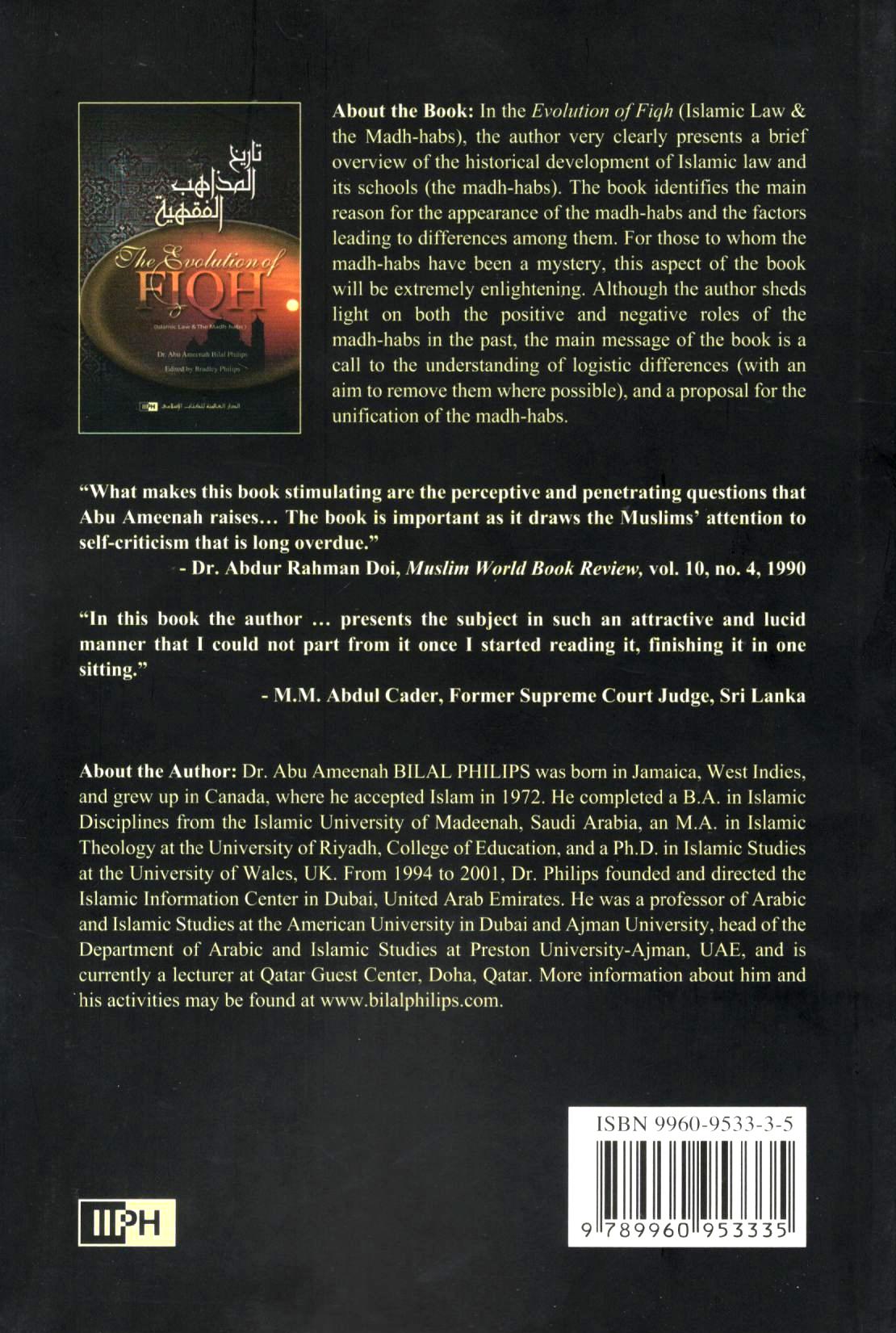
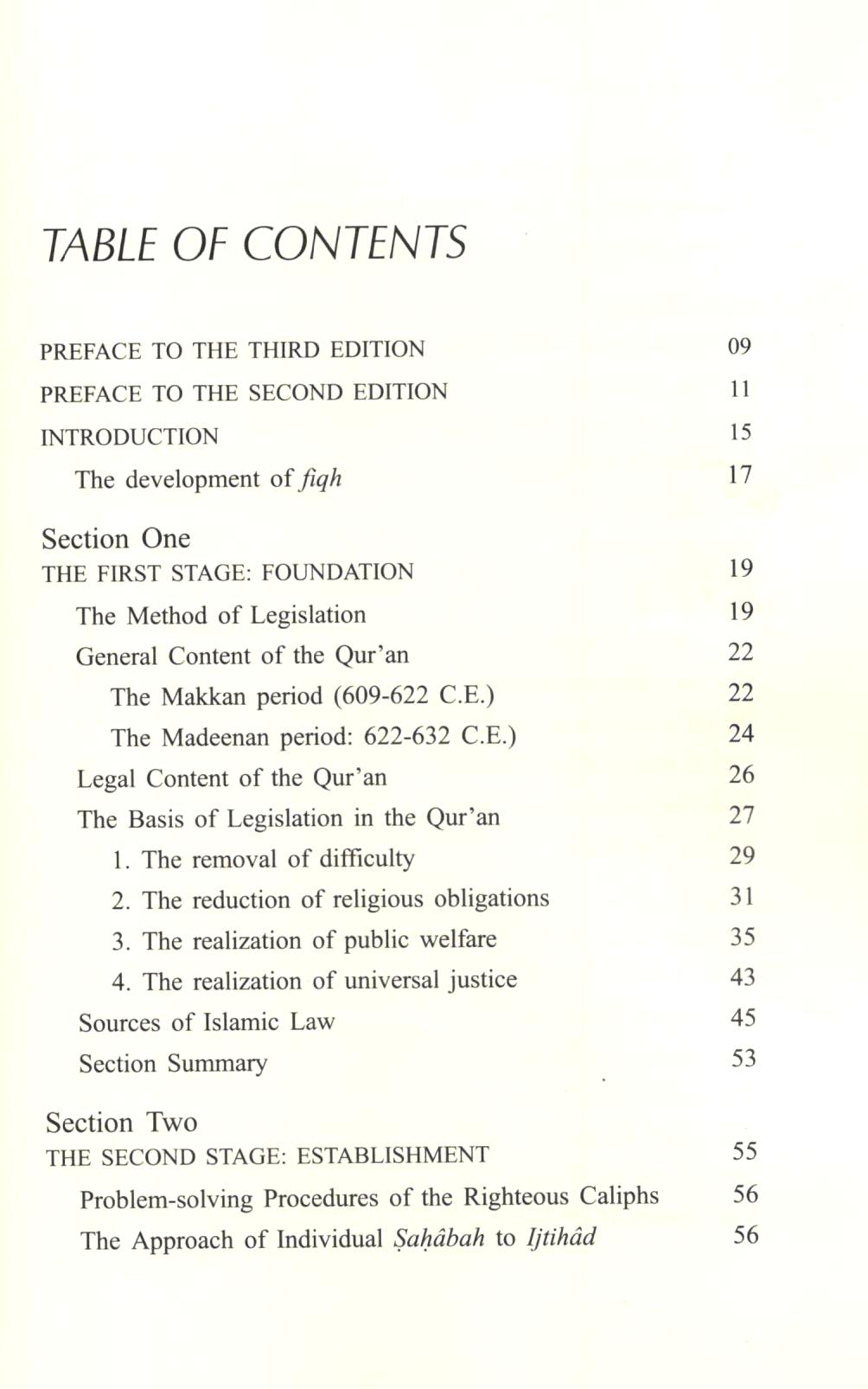
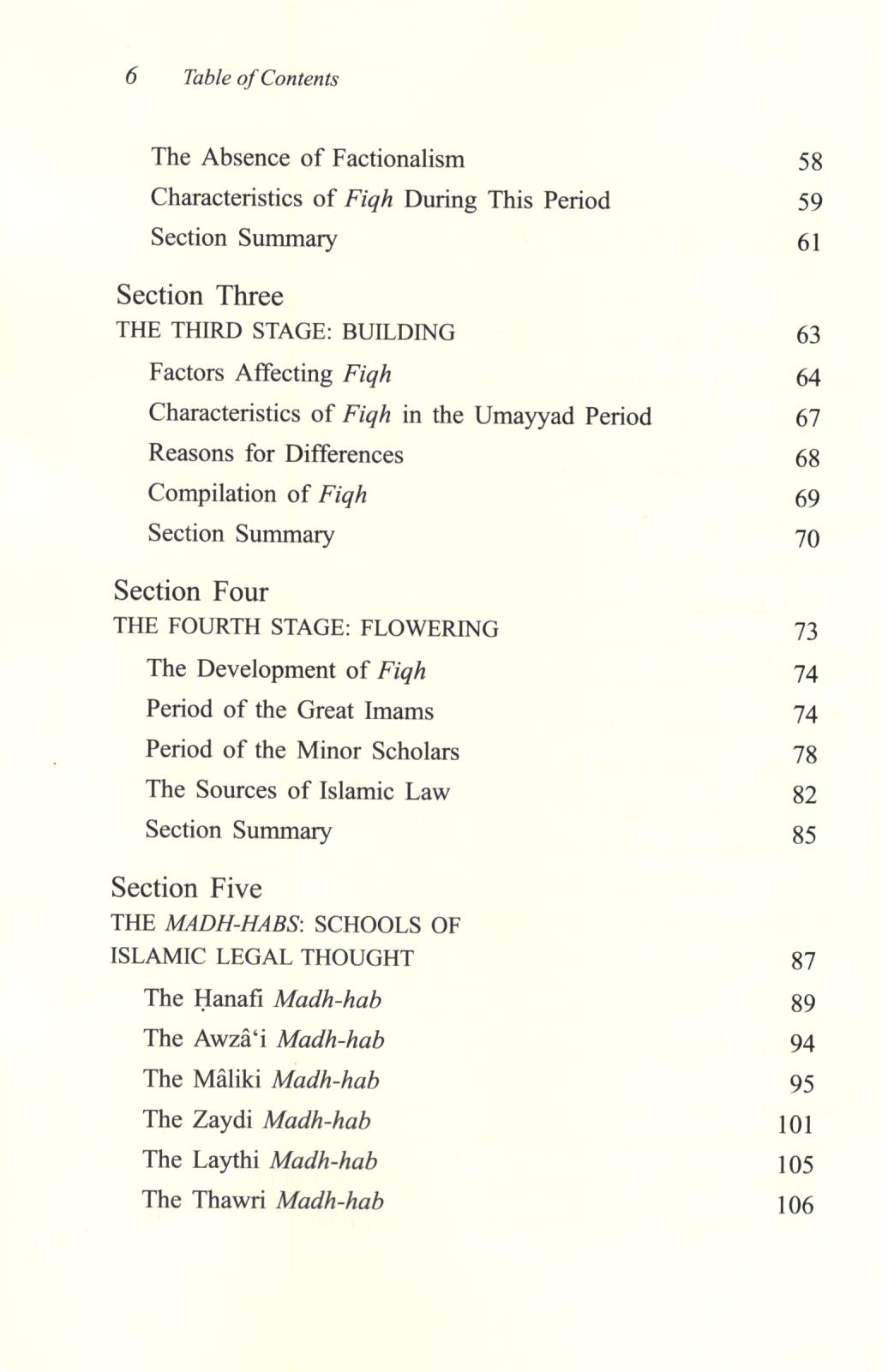


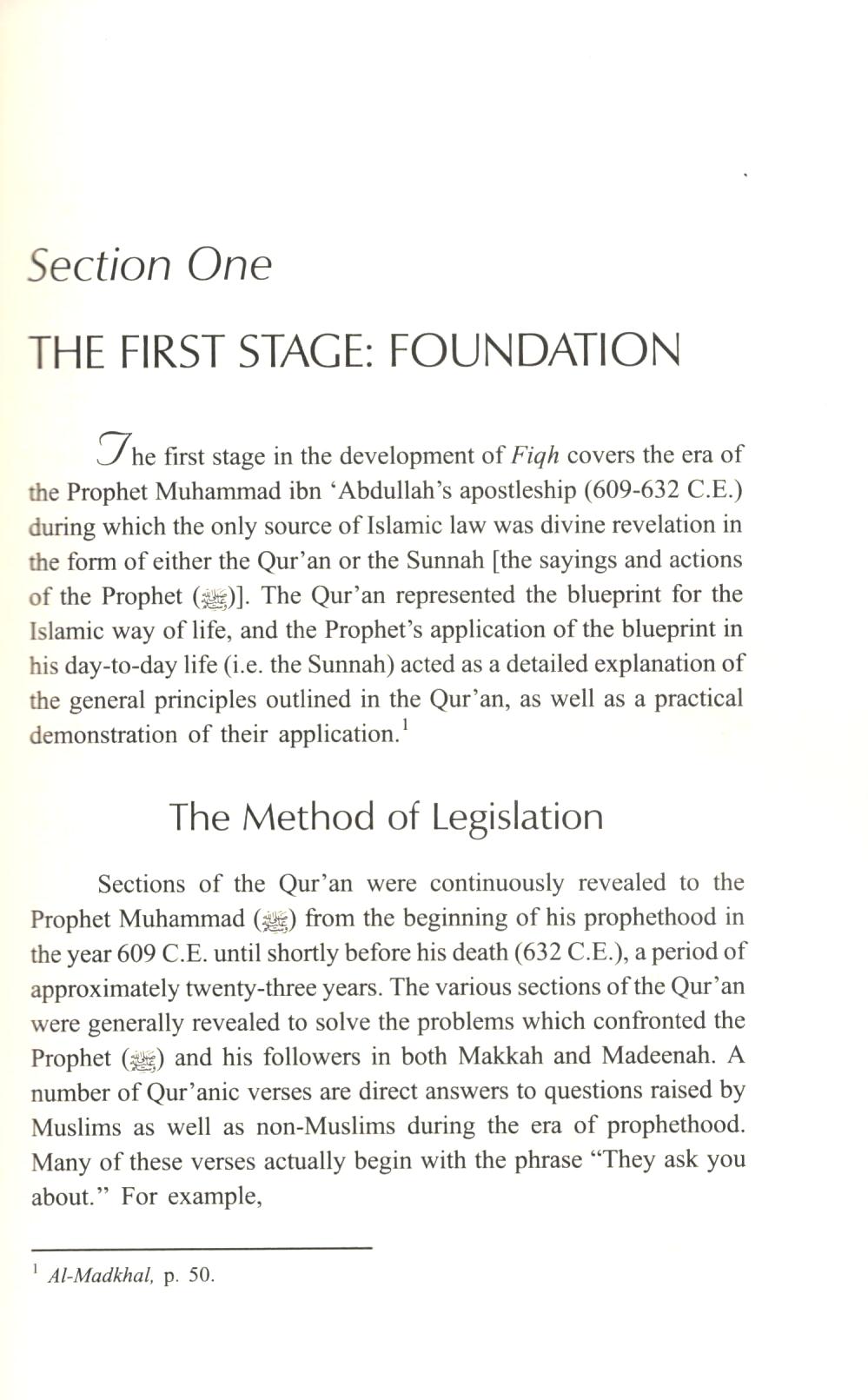
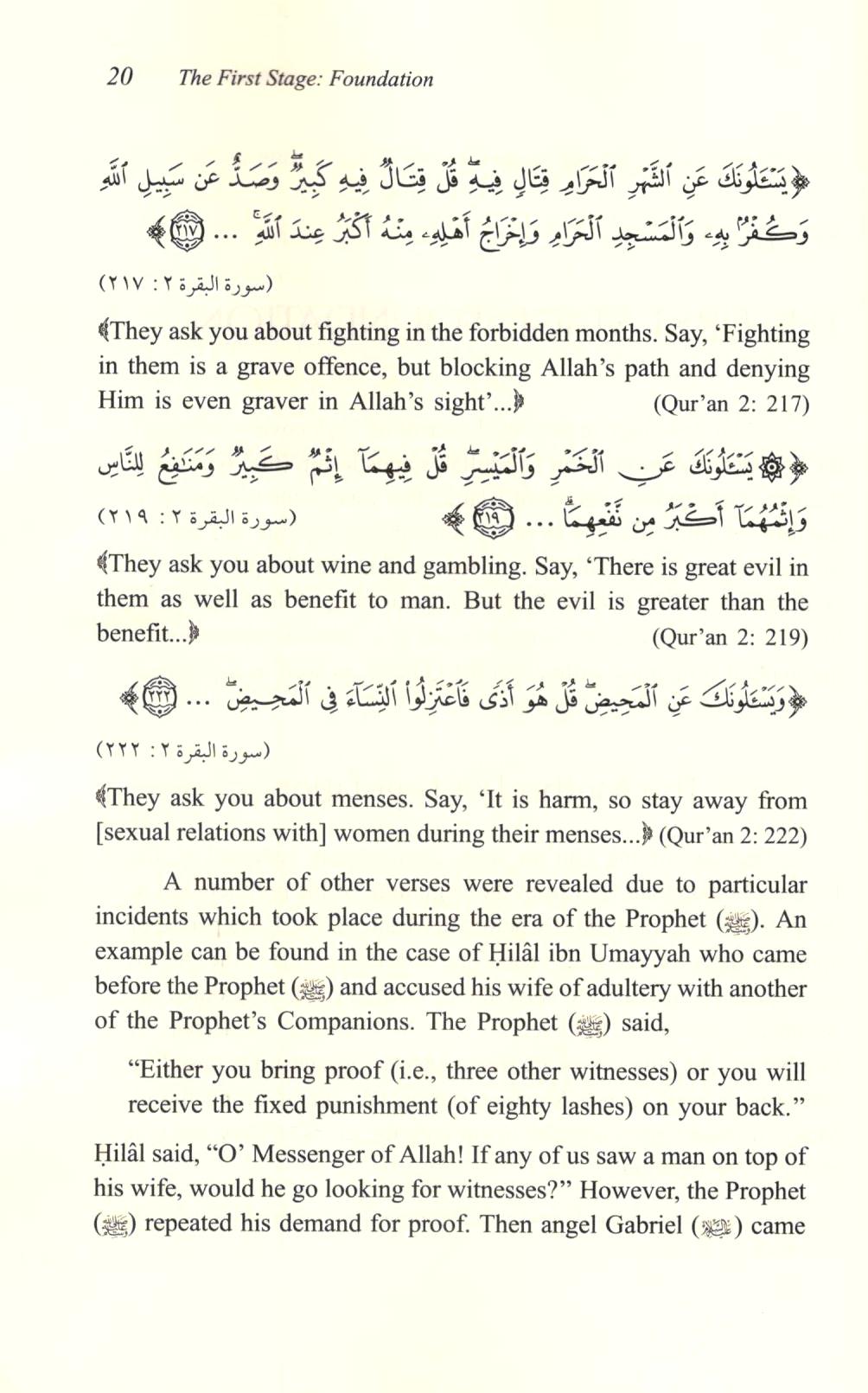

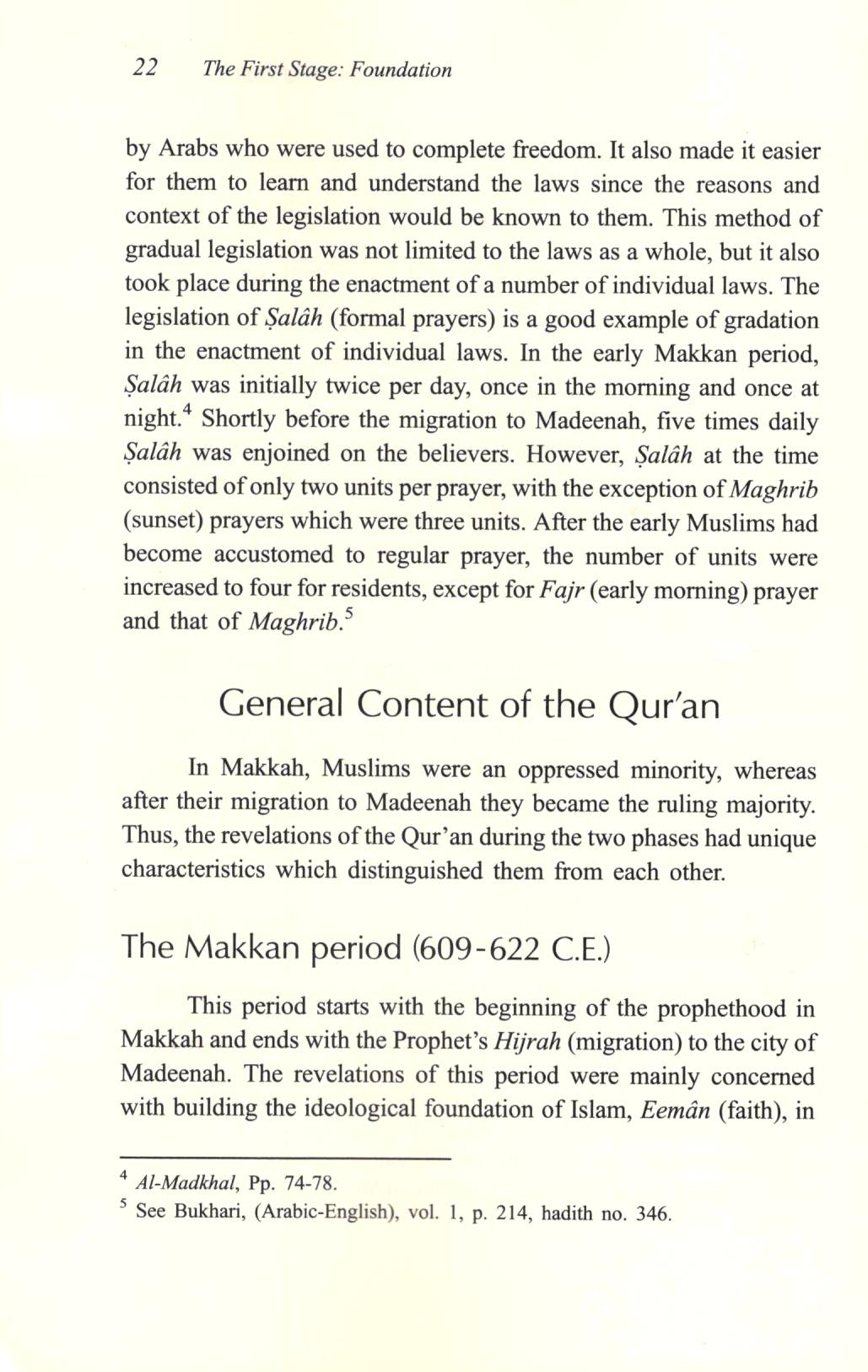
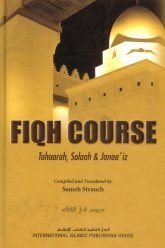
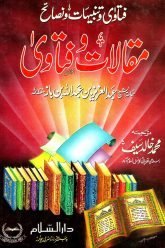
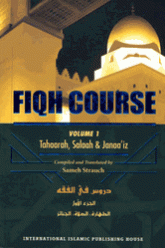
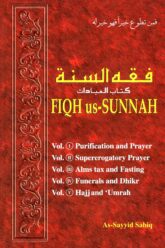
Ammar Awais –
I have read several books on the subject, but this one is by far the best, for several reasons. Firstly, the book isn’t excessively detailed; the concept is beautifully summed up in less than 200 pages by Bilal Philips, which is just the right type of length to properly introduce one to fiqh. Secondly, there is no author’s bias here that’s so common to books of this nature; the information is presented in an objective manner, with a factual and non-patronizing tone adopted throughout. The paper quality is good, and the division of ‘evolution of fiqh’ into the various stages really helps the reader to comprehend the concept of madhabs.
Ammar Awais –
amayrazm (verified owner) –
Overall there’s a lot to learn but after section 8, the author starts to call madhabs a religious sect which is quite confusing. And that all scholars of the Ottoman era deviated and some how all people claim that madhabs are infallible yet that’s not true. Although some people went to extreme lengths but exceptions don’t make the rule hence not all scholars used madhabs as to disunite the nation. Some of the information is very very concerning and some of which is incorrect or said, but not mentioning the answer to it.
amayrazm –